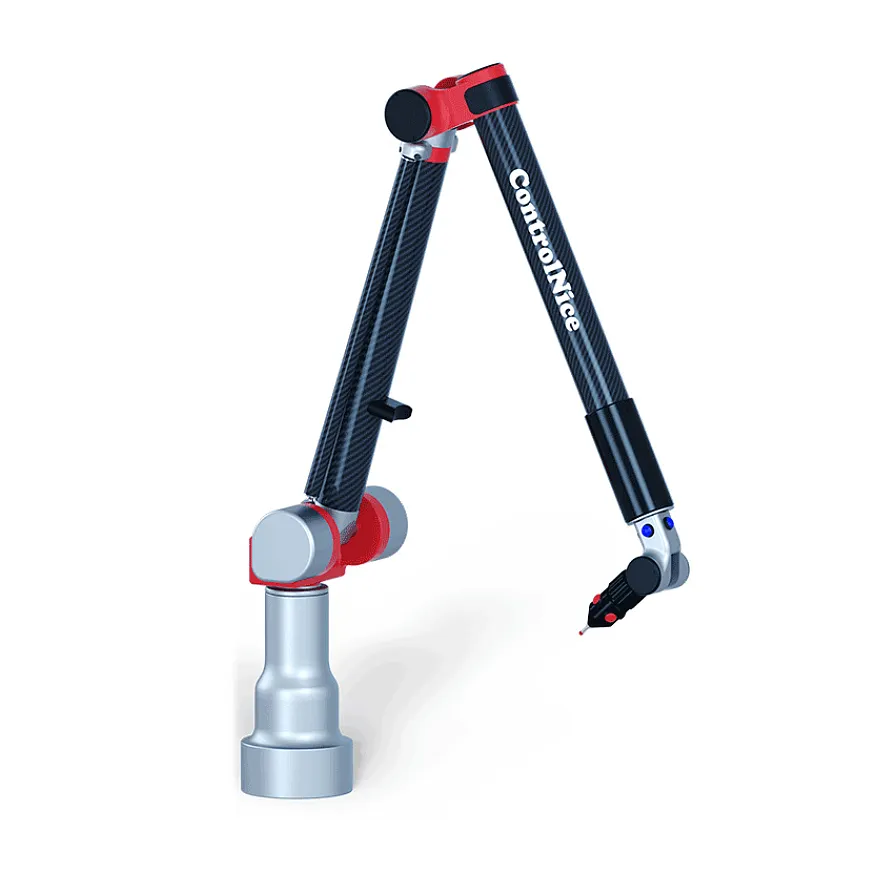How can operators ensure the accuracy of PCMM measurements?
To ensure the accuracy of portable coordinate measurement machine (PCMM) measurements, operators should follow several best practices:
Calibrate the PCMM regularly: Regular calibration is essential for ensuring accurate measurements. The PCMM should be calibrated before each use or at regular intervals, depending on the manufacturer’s recommendations.
Check the measurement environment: The measurement environment can have an impact on the accuracy of PCMM measurements. Operators should check the temperature, humidity, and lighting conditions to ensure they are within the recommended range for the specific PCMM being used.
Verify the measurement data: Operators should verify the measurement data by taking multiple measurements and comparing the results. They should also verify the data against a reference object or a known measurement standard.
Follow proper measurement techniques: Proper measurement techniques can help ensure accurate and consistent measurements. Operators should follow the recommended operating procedures for the specific PCMM being used, including the proper use of the measuring device and the correct positioning of the object being measured.
Maintain the PCMM in good condition: The PCMM should be maintained in good condition to ensure accurate measurements. This includes regular cleaning and maintenance of the measuring device, as well as proper storage and handling when not in use.
By following these best practices, operators can help ensure the accuracy of PCMM measurements and obtain reliable data for their applications. Additionally, training and experience with the specific PCMM being used can also help improve the accuracy of measurements.
Are there any common mistakes operators make that can affect the accuracy of PCMM measurements?
There are several common mistakes that operators can make that can affect the accuracy of portable coordinate measurement machine (PCMM) measurements. Some of these mistakes include:
Poor calibration: If the PCMM is not properly calibrated, it can result in inaccurate measurements. Operators should ensure that the PCMM is calibrated regularly and correctly.
Inadequate preparation of the measurement environment: The measurement environment can have an impact on the accuracy of measurements. portable coordinate measurement machine If the environment is not properly prepared, it can affect the accuracy of the measurements. For example, if the lighting is poor, it can result in inaccurate measurements.
Improper use of the measuring device: The measuring device should be used correctly to obtain accurate measurements. If the operator does not know how to use the device properly, it can result in inaccurate measurements.
Poor fixation of the object being measured: The object being measured should be properly fixed in place to prevent movement during the measurement process. If the object moves during the measurement, it can result in inaccurate measurements.
Inadequate data analysis: Operators should analyze the measurement data carefully to ensure that it is accurate. If the data is not analyzed correctly, it can result in inaccurate measurements.
Lack of experience and training: If the operator lacks experience and training with the specific PCMM being used, it can result in inaccurate measurements. Proper training and experience with the specific PCMM being used can help improve the accuracy of measurements.
By avoiding these common mistakes and following best practices, operators can help ensure the accuracy of PCMM measurements and obtain reliable data for their applications.

Comments are Disabled